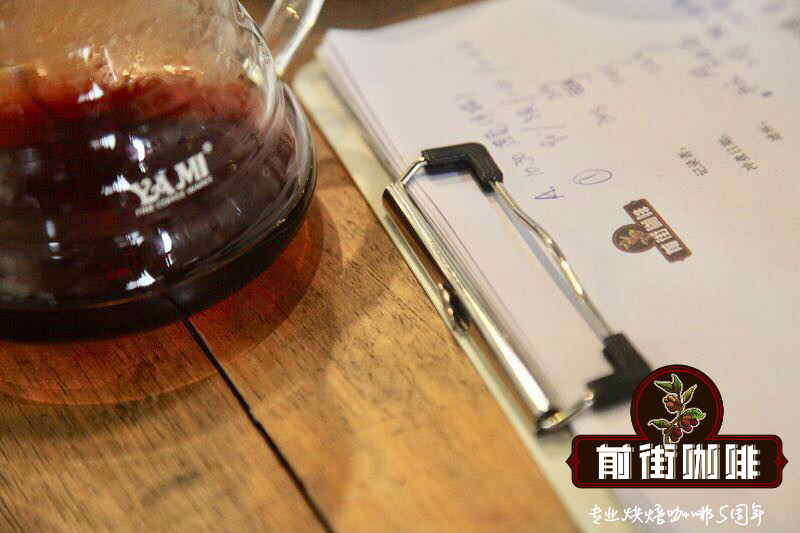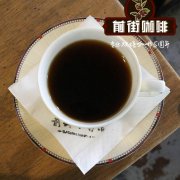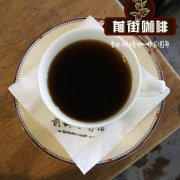What is the East Timorese coffee variety Timor Hybrid? ACTL introduction

Professional coffee knowledge exchange more coffee bean information please follow the coffee workshop (Wechat official account cafe_style)
For more than 200 years, the people of East Timor have experienced a strong culture of drinking coffee. Unlike many other coffee-producing countries, Timorese use coffee as part of their daily rituals.
With the idea of strengthening the coffee industry in Timor-Leste, private enterprises and other stakeholders, including farmers, have taken the lead in an initiative to bring together all sectors of the industry to create positive changes that benefit all participants. In 2016, the country launched its first coffee industry association, the East Timor Caf é Association (ACTL), and held its first Festival Kafe Timor. Following the great success of the festival, the country celebrated its second annual coffee festival from 21 to 28 October.
This is the first national barista competition in East Timor, and the participants are very excited and proud to participate in the competition. Julia Ximenes from Agora Food Studio, an innovative slow Food Sports Cafe, was named the country's first barista champion. Simenez reported, "I think this is a victory for all baristas, not just me, because they have all the support of the audience." We are all proud of all the Timorese baristas involved. "
Although Timor-Leste's image as a coffee producer is still somewhat low-key, the country's history as a coffee producer is unique and its commitment as a specialty coffee producer is enormous. The Portuguese introduced coffee to East Timor in the 1860s. It soon became a major export (more than sandalwood) and accounted for at least 50% of the colony's total exports in the mid-1860s. However, all of these products are owned by a small number of Portuguese landowners and local communities are only involved in logging. In the mid-1970s, when Indonesia took control of the land, coffee became less important and coffee production in East Timor fell sharply. An independent referendum was proposed in 1999 and full independence was achieved by 2002. Since then, another factor that has made East Timor stand out in coffee is that it has its own hybrid, Timor Hybrid-, which dates back to the pre-World War II period. Timor Hybrid (commonly known as Tim Tim or HDT), born from spontaneous mating between Robsta and Arabica plants, is a highly disease-resistant and high-yielding variety that has been grown around the world. Timor Hybrid is also the backbone of the famous Catimor and Sarchimor varieties.
Coffee production conditions in East Timor are far from satisfactory in many ways. The dry climate and the short rainy season have further reduced the soil fertility in many coffee areas of the country. Nevertheless, the country is rapidly improving quality and productivity. Most of the country's coffee is passive organic, because fertilizers and pesticides have never been introduced, and 100% of the coffee is cool. In addition, even the smallest improvements can have a huge effect. There are currently several programmes, many of which are funded by international development organizations, which will fundamentally change the way coffee is harvested and processed in East Timor.
East Timor cultivated varieties
Catimor,Sarchimor and Timor Hybrid (aka Tim Tim or HDT)
(Coffee Arabica) Arabica means the highest quality coffee in the world. The ideal planting site is located in the circular zone of the Tropic of Cancer (between latitudes 25 degrees north and south) and mountainous or subtropical areas that are not easy to frost. Arabica Arabica is the original Arabica species produced in Indonesia and the island of East Timor. This coffee bean has large particles, but its size is not symmetrical, and its aroma and bitterness are in the middle, without acidity. Most of them are used for blending mixed coffee.
Recommended parameters for coffee brewing in Qianjie:
1. Filter cup: V60
two。 Water temperature: 88 degrees
3. Degree of grinding: small Fuji degree of grinding 4
4. Baking degree: medium baking
5. Steaming time: 25 seconds
Flavor: balanced, chocolate, long-lasting caramel sweetness
Qianjie Coffee suggestion: 15g powder, 4 grinding of small Fuji ghost tooth cutter, V60 filter cup, 88-89 degrees water temperature, 30g water injection for the first time, 25 s steaming, water injection to 104g water cut off, wait for the amount of water in the powder bed to go down to half and then water injection, slow water injection until 220g water, 5 grams at the end, no water powder ratio at 1:15, extraction time about 2:00 (calculated after stewing)
Important Notice :
前街咖啡 FrontStreet Coffee has moved to new addredd:
FrontStreet Coffee Address: 315,Donghua East Road,GuangZhou
Tel:020 38364473
- Prev

What is Starbucks East Timor Ermera Coffee? How do you drink East Timorese coffee?
For more information on coffee beans, please follow the Coffee Workshop (official Wechat account cafe_style) most of the coffee produced in East Timor is a mixture of Arabica coffee and Robusta coffee, called Tim Tim (or Timor Hybrid). At the beginning of the 21st century, Starbucks invested heavily in small farmers selling to cooperatives, while the American company was still East Timor.
- Next

What are the characteristics of East Timor alpine organic coffee? The cultivation of coffee in East Timor
The Coffee Workshop (official Wechat account cafe_style) although Timor-Leste's image as a coffee-producing country is still a bit low-key, the country's history as a coffee producer is unique and its commitment as a specialty coffee producer is enormous. The Portuguese introduced coffee to East Timor in the 1860s. It's very...
Related
- Detailed explanation of Jadeite planting Land in Panamanian Jadeite Manor introduction to the grading system of Jadeite competitive bidding, Red bid, Green bid and Rose Summer
- Story of Coffee planting in Brenka region of Costa Rica Stonehenge Manor anaerobic heavy honey treatment of flavor mouth
- What's on the barrel of Blue Mountain Coffee beans?
- Can American coffee also pull flowers? How to use hot American style to pull out a good-looking pattern?
- Can you make a cold extract with coffee beans? What is the right proportion for cold-extracted coffee formula?
- Indonesian PWN Gold Mandrine Coffee Origin Features Flavor How to Chong? Mandolin coffee is American.
- A brief introduction to the flavor characteristics of Brazilian yellow bourbon coffee beans
- What is the effect of different water quality on the flavor of cold-extracted coffee? What kind of water is best for brewing coffee?
- Why do you think of Rose Summer whenever you mention Panamanian coffee?
- Introduction to the characteristics of authentic blue mountain coffee bean producing areas? What is the CIB Coffee Authority in Jamaica?

